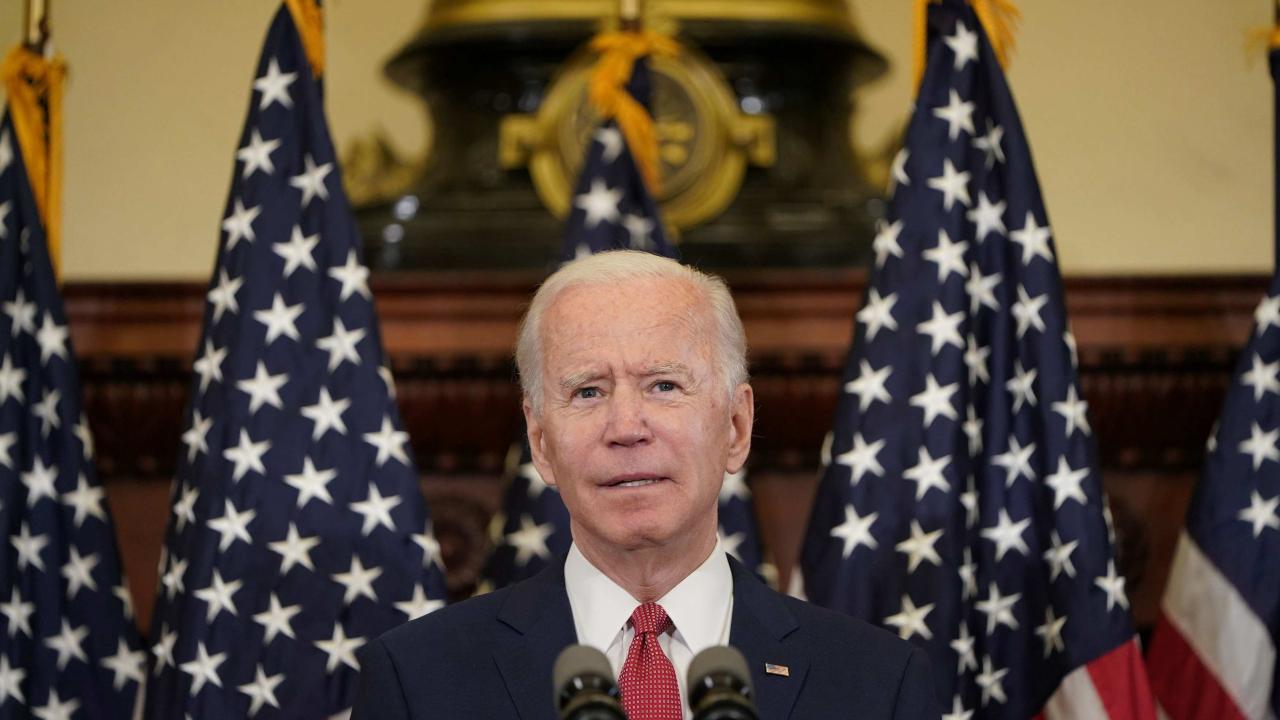
Editor's note: Thomas O. Falk is a London-based political analyst and commentator. He holds an MA in international relations from the University of Birmingham and specializes in U.S. affairs. The article reflects the author's opinions, and not necessarily the views of CGTN.
An end to the entry ban, a border wall construction freeze, a perspective for Dreamers, and amnesty for millions of illegal aliens: Shortly after his inauguration, President Joe Biden initiated his immigration reform, seeking to break with the restrictive policies of predecessor Donald Trump and deliver a paradigm shift. It is the wrong decision at the wrong time.
Among other things, the President revoked Trump's entry ban for people from 13 predominantly Muslim countries – including Eritrea, Yemen, Nigeria, and Sudan. The wall's construction on the border with Mexico, Trump's prestige project, has also been stopped by executive order with immediate effect.
In addition, asylum seekers from Mexico will no longer be brought back to the neighboring country to wait for their application decisions – though the current travel restrictions due to the coronavirus pandemic are currently in force.
The undoubtedly most critical and controversial part is Biden's vision to grant amnesty to millions of illegal immigrants. If passed, they would be given a path to citizenship. This would apply to – depending on the source – about 11 million who currently residing in the U.S. without valid papers.
It is thus no surprise that amnesty regulations have been a controversial topic for years. Most recently, George W. Bush and Barack Obama presented comprehensive concepts during their term in office. However, both failed in getting their bill through Congress.
Biden could face a similar fate, as it remains unclear whether Democratic senators such as Joe Manchin and Kyrsten Sinema are inclined to vote in favor of such a game-changing project. Every vote counts, as the Senate's razor-thin majority does not allow for any defectors.
Moreover, immigration reform did not deliver the desired decrease in illegal immigration in the past.

Migrant families recently released from detention arrive at a bus depot in McAllen, Texas, U.S., May 16, 2019. /VCG
Migrant families recently released from detention arrive at a bus depot in McAllen, Texas, U.S., May 16, 2019. /VCG
For example, the Immigration Reform and Control Act of 1986 granted amnesty to millions of illegal immigrants in the hope of solving the problem of illegal border crossings. However, the result was an increase in illegal immigrants from 5 million in 1986 to 11.1 million in 2013.
Even the potential for an amnesty appears to correlate in rising figures, as the latter is a powerful incentive to attempt an illegal entry. In 2020, a monthly increase in illegal border crossings was recorded once it had become evident Joe Biden would become the Democratic nominee. This month, a border post in Texas recorded a 193 percent increase in illegal border crossings compared to the same period the previous year.
If Biden's bill were to become law, the immediate political implications would be significant and arguably detrimental to his party. Sure, one can argue the naturalization of 11 million people, of whom a considerable number will feel thankful towards President Biden and the Democratic party, and thus obliged to return the favor during the next election.
But even if that was the case, the tradeoff appears simply too high. A wide-ranging amnesty would allow the Republican Party to continue its transformation into the working-class party. It is this voter group that has traditionally opposed immigration reform.
After all, they are the ones who are affected the most by immigration in their daily lives, such as on the job market, via the economy, in education, etc. These already existing trepidations are further exacerbated by rising unemployment in the current climate.
Biden's plan is bad news in many ways for his idea to unite the country and sends the wrong signal at the wrong time. With the next elections being only 22 months away and his congressional majority at stake, the move could be as costly as it is noble.
(If you want to contribute and have specific expertise, please contact us at opinions@cgtn.com.)

